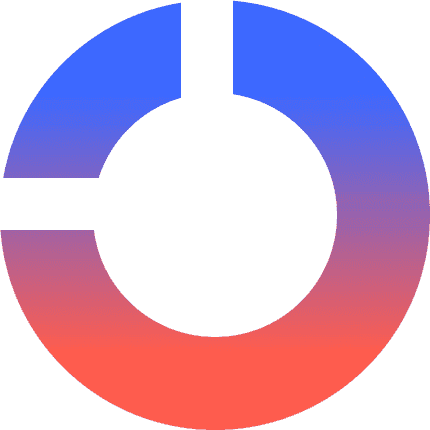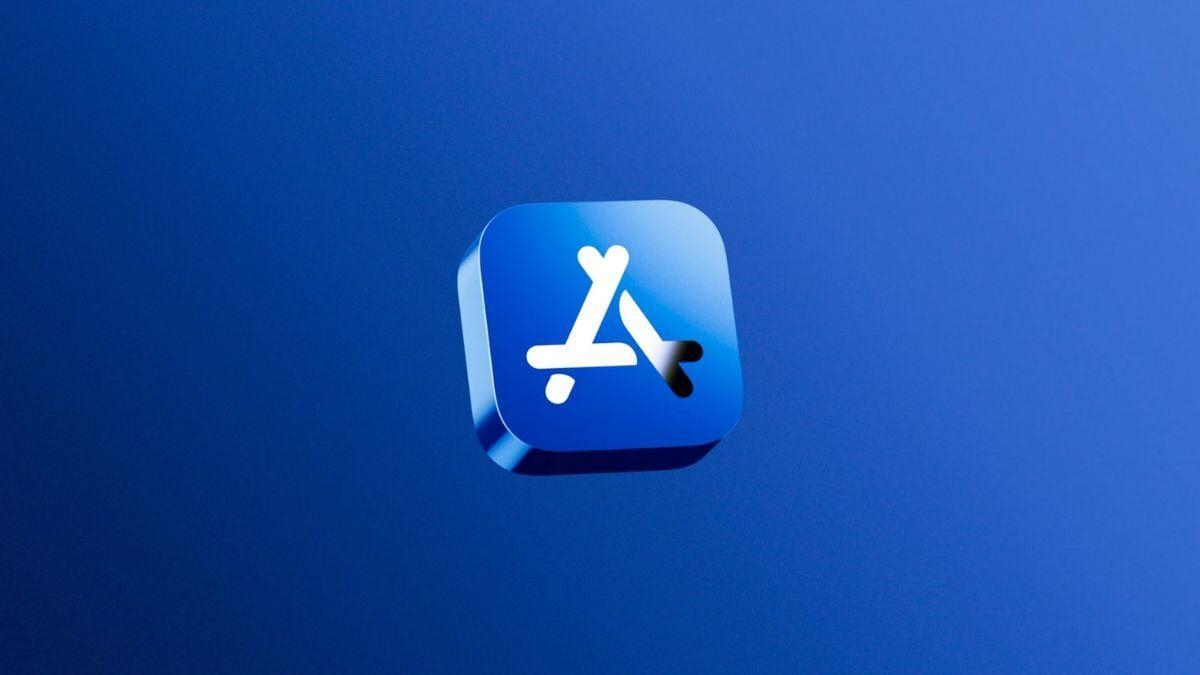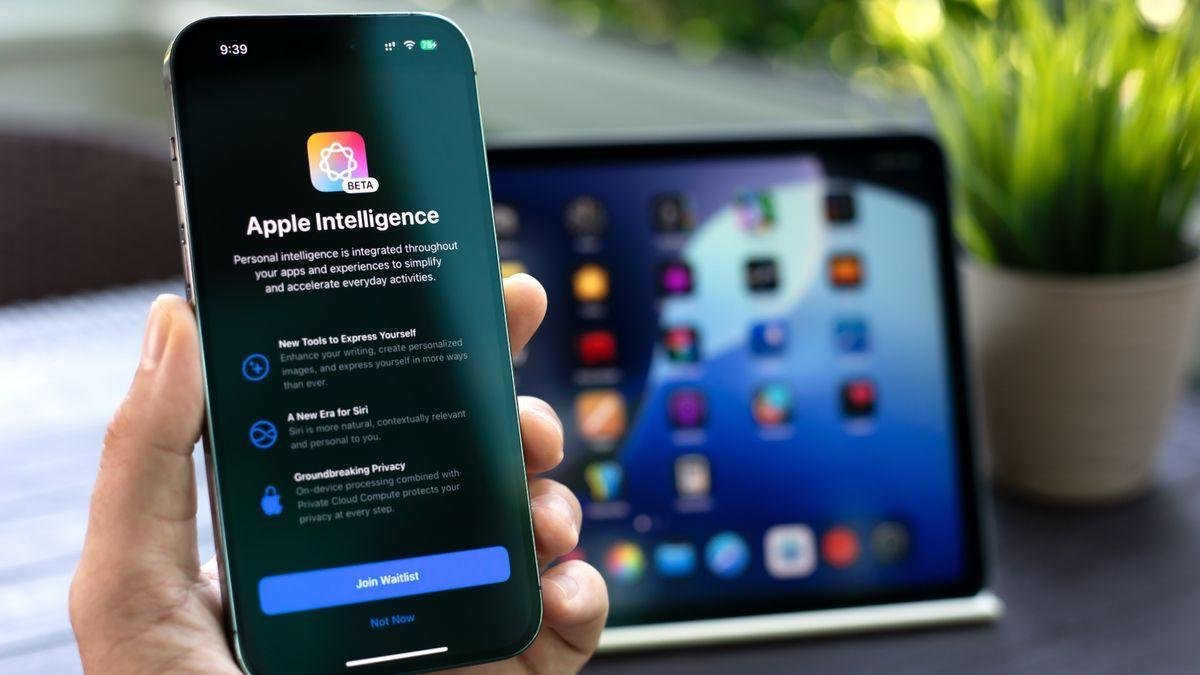Apple Introduces AI-Powered App Store Tags to Enhance App Discovery
4 Sources
4 Sources
[1]
At WWDC, Apple says it will use AI to tag apps to improve discoverability on the App Store | TechCrunch
Apple will begin using AI technology to power the discovery of apps on the App Store, the company announced at this week's Worldwide Developers Conference (WWDC 25). In a session focused on updates to App Store Connect, its app distribution platform for developers, the company announced it will introduce App Store Tags -- labels that highlight specific features and functionalities found in an app. These tags will initially be generated by Apple's large language models using various sources, like the app's metadata. They'll then be human-reviewed before being applied to apps on the App Store. Apple customers will be able to use these tags when searching for apps on the App Store, where the tags appear alongside the categories on the search page and the apps that appear in the search results. Apple says the new tags will help surface information that's often buried in app listings, like the app's App Store description, category, metadata, or even in its screenshots. The tags, Apple believes, will help users more easily find the apps that offer the functionality they're looking for, while also giving developers a better idea about how their apps are being discovered. Today, consumers find apps through a number of App Store features, including its editorial pieces on the Today tab, collections curated by the App Store's editorial team, by browsing app categories, or using App Store Search. Apple also monetizes the App Store with ads that can appear on the Today tab, the Search tab, on product pages, and in its search results. When App Store users tap on one of the new tags, they'll be taken to a new page offering a curated collection of all the apps and games that offer similar features or functionality -- an extension to the App Store's existing feature that points users to apps they "might also like," found at the bottom of individual listings. Although the tags themselves are AI-generated and reviewed, developers will ultimately have the final word on which tags are associated with their apps. A new information page will be available in the App Store Connect software, where they can manage tags or deselect those they don't want to show up on their app's product page. Apple is already using AI on its App Store to summarize an app's reviews by combining information into a short paragraph. Tags aren't the only improvements coming to the App Store. Apple says that developers will also be able to create custom product pages that appear when a user searches for apps using particular keywords. It's also improving its app "nutrition labels" feature; expanding its lineup of app age ranges (there are now five); and extending offer codes to consumables, non-consumables, and non-renewing subscriptions.
[2]
The App Store's new AI-generated tags are live in the beta | TechCrunch
Apple's plans to improve App Store discoverability using AI tagging techniques are now available in the developer beta build of iOS 26. However, the tags do not appear on the public App Store as of yet, nor are they informing the App Store Search algorithm on the public store. Of course, with any upcoming App Store update, there's speculation about how changes will impact an app's search ranking. A new analysis by app intelligence provider Appfigures, for example, suggests metadata extracted from an app's screenshots is influencing its ranking. The firm theorized that Apple was extracting text from screenshot captions. Previously, only the app's name, subtitle, and keyword list would count towards its search ranking, it said. The conclusion that screenshots are informing app discoverability is accurate, based on what Apple announced at its Worldwide Developer Conference (WWDC 25), but the way Apple is extracting that data involves AI, not OCR techniques, as Appfigures had guessed. At its annual developer conference, Apple explained that screenshots and other metadata would be used to help improve an app's discoverability. The company said it's using AI techniques to extract information that would otherwise be buried in an app's description, its category information, its screenshots, or other metadata, for example. That also means that developers shouldn't need to add keywords to the screenshots or take other steps to influence the tags. This allows Apple to assign a tag to better categorize the app. Ultimately, developers would be able to control which of these AI-assigned tags would be associated with their apps, the company said. Plus, Apple assured developers that humans would review the tags before they went live. In time, it will be important for developers to better understand tags and which ones will help their app get discovered, when the tags reach global App Store users.
[3]
Apple now uses AI to guide what apps you see
Apple announced at WWDC 25 that it will implement AI-powered App Store Tags to improve app discoverability. The tags, highlighting specific app features and functionalities, will be generated via AI and human review. The new App Store Tags will be visible on the App Store search page alongside categories and within app search results. Apple states that the tags will surface information typically found in app descriptions, categories, metadata, or screenshots. Users who tap on a tag will be directed to a curated collection of apps with similar features. This functions as an extension of the App Store's "might also like" feature. Developers can manage the tags associated with their apps through a new information page in App Store Connect. This allows developers to deselect unwanted tags from appearing on an app's product page. AI is already used within the App Store to create brief summaries of app reviews. In addition to tags, Apple announced that developers can create custom product pages that appear when users search for apps using specific keywords. Improvements are also being made to app "nutrition labels," including expansion of app age ranges to five categories. Offer codes are being extended to consumables, non-consumables, and non-renewing subscriptions.
[4]
Apple Might Use AI Tags to Help Users Find Relevant Apps on App Store
These tags will reportedly be based on features of different apps Apple reportedly unveiled a new artificial intelligence (AI) feature for its App Store at the Worldwide Developers Conference (WWDC) 2025. As per the report, the new feature, dubbed App Store Tags, is a new way for users to discover new and relevant apps within the marketplace. The Cupertino-based tech giant reportedly said these tags will be based on the features and functionalities found within different apps, making them more useful for users. The company is said to be using in-house AI models to create these tags. According to a TechCrunch report, the iPhone maker announced the new feature during a session about the changes coming to the App Store Connect at the WWDC 2025. App Store Tags are said to be new labels that will be created using Apple's large language models. These AI models will reportedly collect data from various sources within the App Store, including places which are generally pushed deep within the app listing page. Some of these are said to be the app description, app category, metadata, and even the screenshots added to the page. Based on this data, the models will reportedly create new tags or labels that are based on specific features and functionalities of apps. Users who tap on these tags are said to be taken to a new page where a curated list of apps and games that come with a specific feature or functionality will be displayed. When App Store users tap on one of the new tags, they'll be taken to a new page offering a curated collection of all the apps and games that offer similar features or functionality -- an extension to the App Store's existing feature that points users to apps they "might also like," found at the bottom of individual listings. Notably, the publication mentioned that while these tags will be AI-generated, they will be reviewed by humans before they are applied to apps and made live on the App Store. Additionally, developers are said to be in control of which tags are associated with their apps. For this, they will reportedly get a new information page on the App Store Connect software.
Share
Share
Copy Link
Apple announces the implementation of AI-generated App Store Tags at WWDC 2025, aiming to improve app discoverability and user experience on the App Store.
Apple Introduces AI-Powered App Store Tags
At the Worldwide Developers Conference (WWDC) 2025, Apple announced a significant update to its App Store: the introduction of AI-generated App Store Tags. This new feature aims to enhance app discoverability and improve the overall user experience on the platform
1
.Source: TechCrunch
How App Store Tags Work
The new App Store Tags are labels that highlight specific features and functionalities found in apps. These tags are generated using Apple's large language models, which analyze various sources of information, including:
- App metadata
- App Store descriptions
- App categories
- Screenshots
After AI generation, the tags undergo human review before being applied to apps on the App Store
1
.User Experience and Functionality

Source: Dataconomy
App Store users will see these tags alongside categories on the search page and in search results. When a user taps on a tag, they are directed to a curated collection of apps and games offering similar features or functionality
3
.This new feature is an extension of the App Store's existing "might also like" recommendation system, aiming to surface information that is often buried in app listings
1
.Developer Control and Implementation
While the tags are AI-generated and human-reviewed, developers retain ultimate control over which tags are associated with their apps. A new information page in App Store Connect allows developers to manage tags, including the option to deselect unwanted tags from appearing on their app's product page
3
.Related Stories
Current Status and Future Implications
As of now, the AI-generated tags are available in the developer beta build of iOS 26 but have not yet appeared on the public App Store. They are also not currently informing the App Store Search algorithm on the public store
2
.App intelligence provider Appfigures has speculated that metadata extracted from app screenshots may influence search rankings. However, Apple clarified that the data extraction involves AI techniques rather than OCR, as initially guessed
2
.Additional App Store Improvements

Source: Gadgets 360
Alongside the introduction of AI-generated tags, Apple announced several other improvements to the App Store:
- Custom product pages for specific keyword searches
- Improved app "nutrition labels"
- Expanded app age ranges (now five categories)
- Extended offer codes for various app types
1
As these features roll out globally, it will be crucial for developers to understand how tags can help their apps get discovered and optimize their presence on the App Store accordingly
2
.References
Summarized by
Navi
[1]
[3]
Related Stories
Recent Highlights
1
Google Gemini 3.1 Pro doubles reasoning score, beats rivals in key AI benchmarks
Technology

2
ByteDance's Seedance 2.0 AI video generator triggers copyright infringement battle with Hollywood
Policy and Regulation

3
ChatGPT cracks decades-old gluon amplitude puzzle, marking AI's first major theoretical physics win
Science and Research








